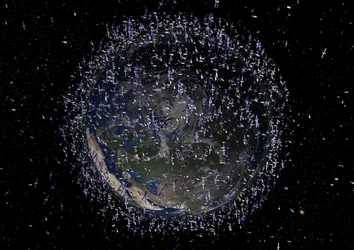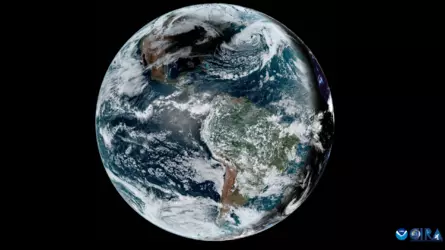- Joined
- Jul 7, 2022
Climate doomers love to fear monger about how so many satellites and so much artificial debris is in Earth's orbit (despite being at varying distances from Earth) that the blue marble is completely obscured by a layer of trash.
They love using images like these to articulate their point:

Climate doomers will also take actual NASA photographs of Earth from geosynchronous orbit and claim that they were doctored to "make Earth not look like a ball of shit"
If an alien were to fly toward Earth and look out the window, would this be what they see? Or are those bits of space debris so inconsequential that they can barely be seen?

They love using images like these to articulate their point:

Climate doomers will also take actual NASA photographs of Earth from geosynchronous orbit and claim that they were doctored to "make Earth not look like a ball of shit"
If an alien were to fly toward Earth and look out the window, would this be what they see? Or are those bits of space debris so inconsequential that they can barely be seen?
